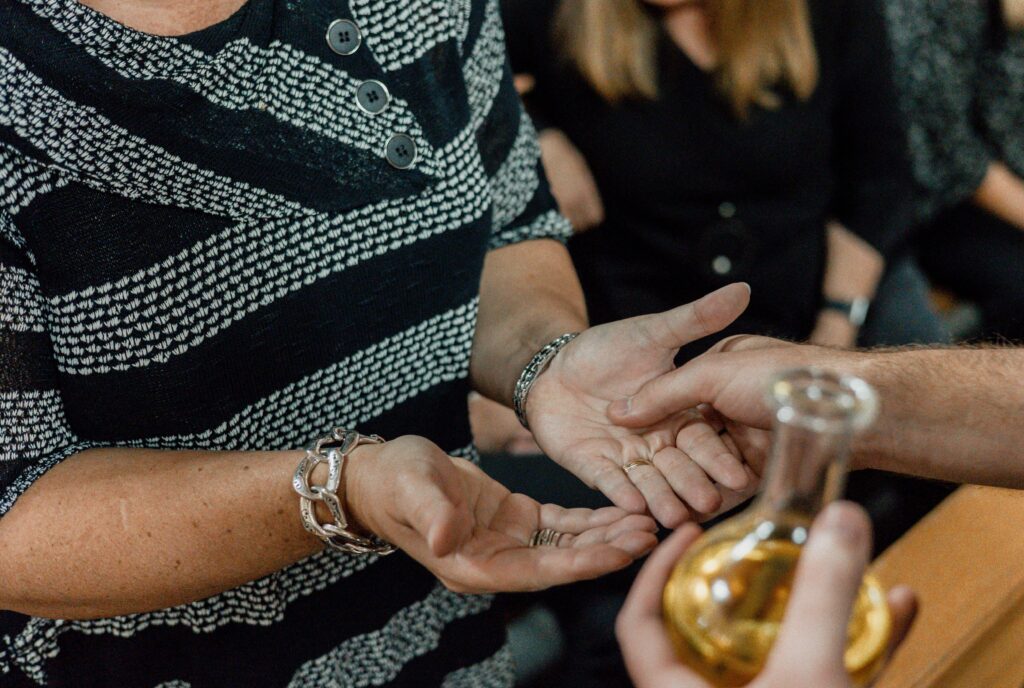
In the Gospel reading today, we see how the physical realities of this world mean something to Jesus. He tells us that we must eat his body and drink his blood to have eternal life. At the Last Supper, he shows us how this is possible through the priesthood in the context of the Mass. Throughout Scripture, when Jesus makes physical things holy, such as bread, wine, water, oil, our bodies, and our communal gatherings, he gives them a powerful spiritual purpose and significance.
A while back, I was listening to a podcast from a non-Catholic Christian who specializes in trying to help Christian churches thrive. They were asking the question, “How do we ‘do’ church?” This expert recommended that churches meet the needs of our modern culture by investing more in online “church.” Hmmm… an emphasis on online church community and “worship” minimizes the importance of our physical natures and how we are taught by Christ to live and to worship.
The Catholic Church was founded by Christ when he said to Peter, “You are Peter [Rock], and upon this Rock, I will build my church.” Ever since then, for over 2,000 years, the Catholic Church has been asking in various ways, “How do we ‘do’ church?” We “do church” by gathering for worship and fellowship and by engaging in the sacraments.
The Church is the family of God, and we are taught by Christ to worship God together. Online opportunities can only take us so far. We need to be physically, emotionally, and spiritually interacting with each other, like a family, in order to do what the Church is called to do. Sometimes it is exhausting, but God teaches us, through our daily personal interactions, to grow in virtue and to rely on his grace.
When it comes to the sacraments, “Virtual reality is no substitute for the Real Presence of Christ in the Eucharist, the sacramental reality of the other sacraments, and shared worship in a flesh-and-blood human community” (The Pontifical Council for Social Communications in The Church and the Internet). Holy Communion, Baptism, Confession, Matrimony, Holy Orders, the Anointing of the Sick—they are all encounters with the living, personal Christ who became incarnate to be with us.
While churches may offer legitimate, helpful, online opportunities for communion and growth in faith, there is so much more than that. Human beings were designed to commune with each other in more meaningful ways, and the Catholic Church, whether she is found in Zimbabwe, Japan, or the United States of America, makes grace available to us through the spiritual and physical elements of the sacraments.
Daily Reading
Wednesday of the Fifth Week of Easter
Reading 1 Acts 15:1-6 Some who had come down from Judea were instructing the brothers,“Unless you are circumcised according to the Mosaic practice,you cannot be saved.”Because there arose no little…
Saint of the Day
Saint Joseph the Worker
The feast of Saint Joseph the Worker was established by Pope Pius XII in 1955 in order to Christianize the concept of labor and give to all workmen a model and a protector.
The post Saint Joseph the Worker appeared first on uCatholic.



